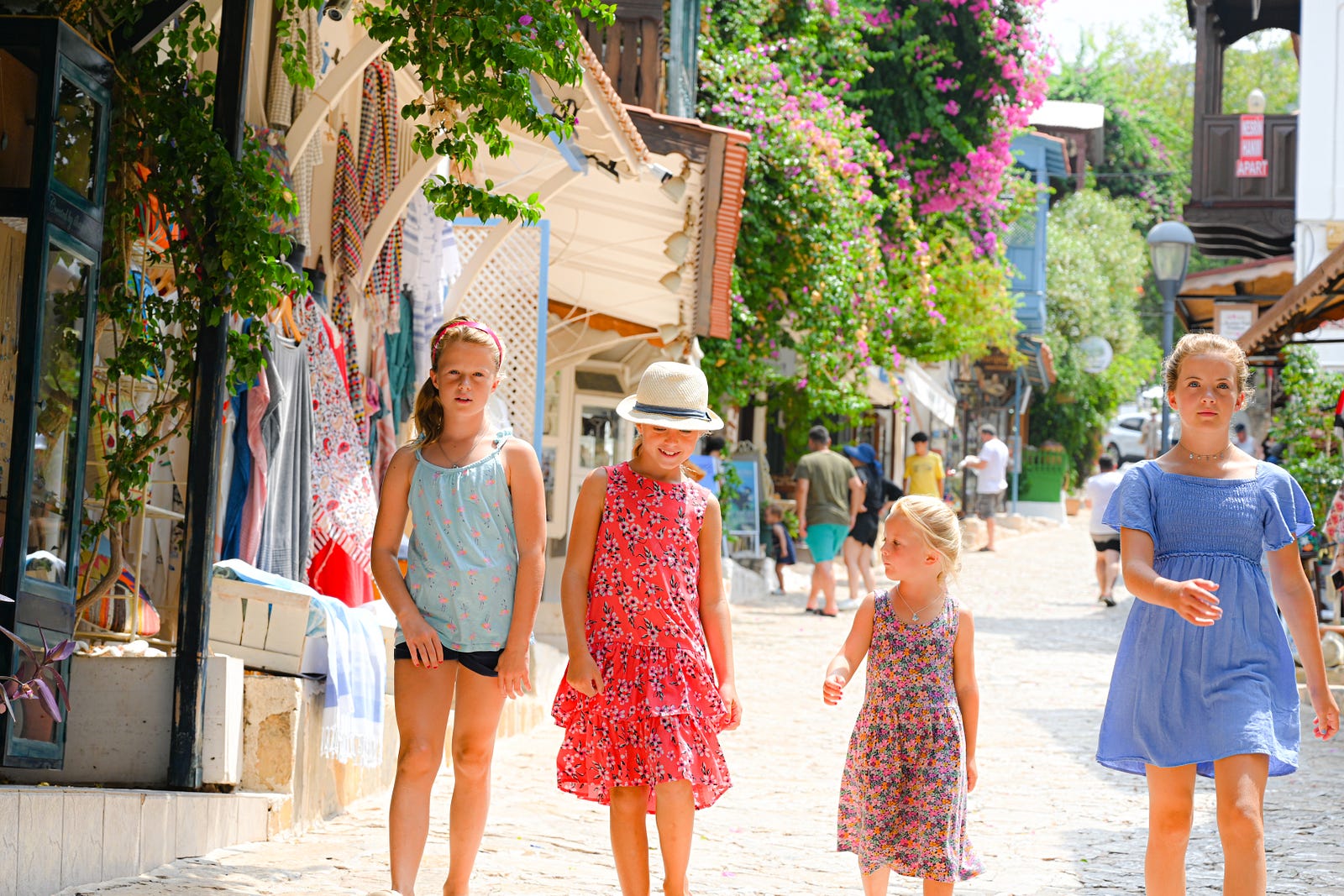by Janelle Schroy
It’s 8pm and the day is coming to a close on the farm. The hot summer air slowly melts into the coolness of the night.
We’ve been invited to “eat börek” with a local Turkish family who we recently met, and you can bet these world travelers aren’t ones to say no to good food or to cultural immersion experiences!
Börek is a special dish in Turkey which is made often with phyllo pastry or with a hand-made dough resembling what you would use to make bread.
The dough is stuffed with delicious fillings such as cheese, meat, potatoes or spinach. The pastry is then cooked to perfection by frying, baking or heating it on a griddle.
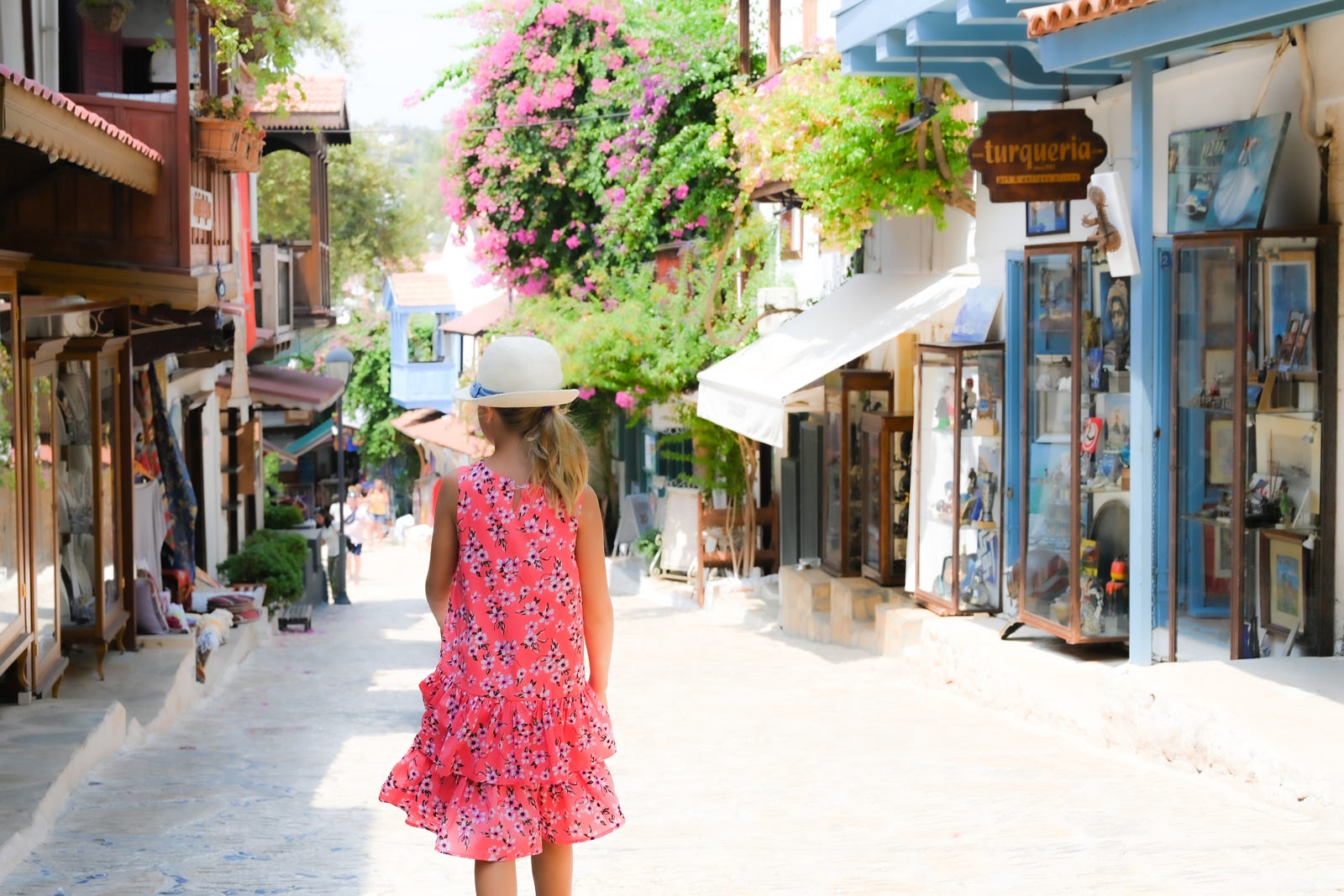
There are many kinds of börek in Turkey. Some come in spiral shapes, some in squares, and some are shaped more like a crêpe. But no matter the form, the basic idea is the same. It’s a dough with some kind of stuffing / filling and it’s always a melt-in-your-mouth experience.
When we come down from our rented flat, we find a group of Turkish women in the carport area of their home, with a fire lit and stacks of börek already finished.
They speak no English, but their gestures indicate that my girls and I should take off our shoes, join them on the carpet, and come help them make the börek.
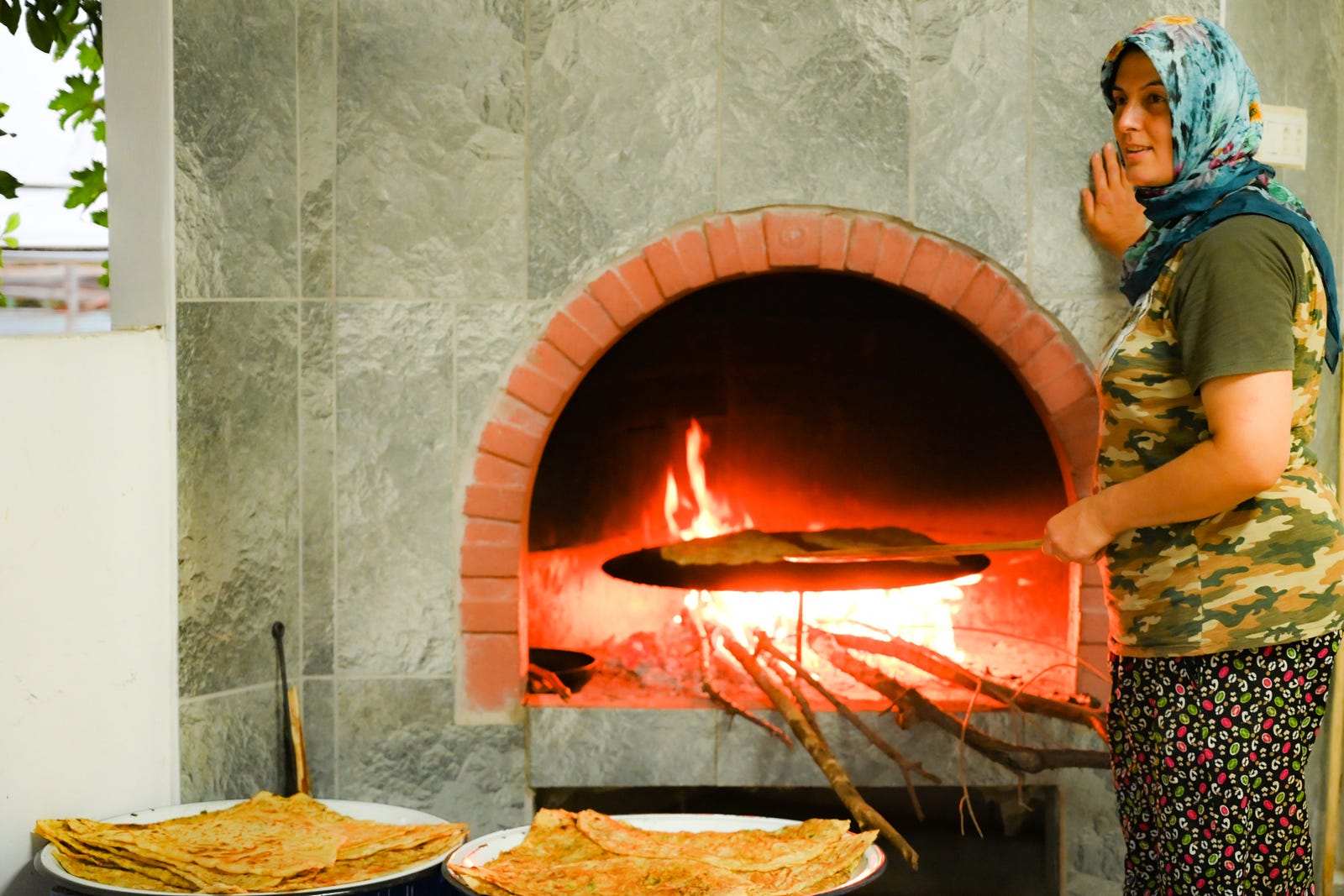
This is the power of proximity. Just because we were here, we were invited into this circle of familial love and tradition.
The women are arranged around small round tables on a carpet, and they are using long rolling pins to roll pastry dough balls into huge circles of thin pastry. My girls are invited to get into the action around a small table just their size.

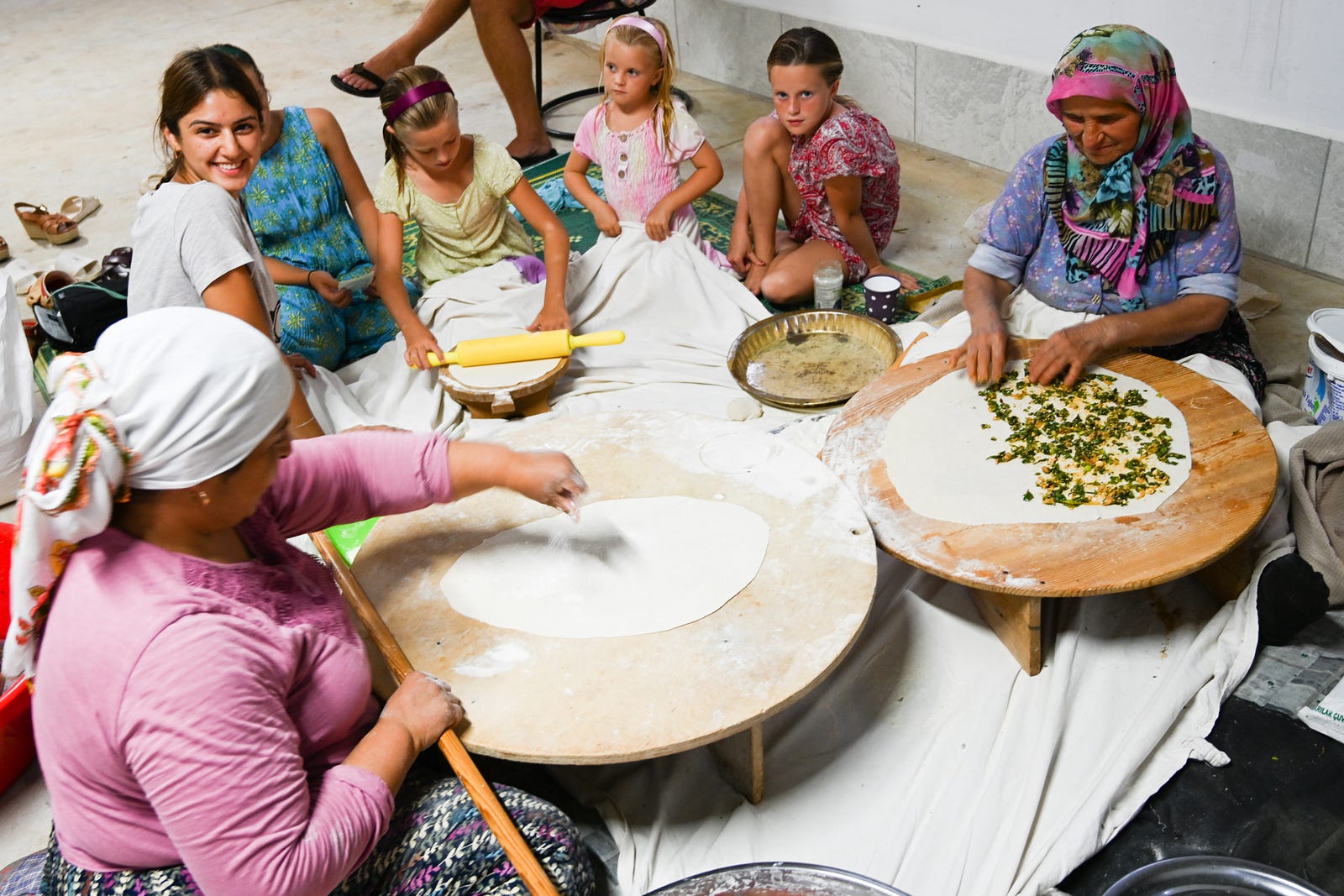
We watch as the women fill the dough with a spinach, cheese, onion concoction and pinch together the sides, before handing it over to Aysun, the mother who stands at the fire, who is cooking each borek on a griddle.
We are learning.
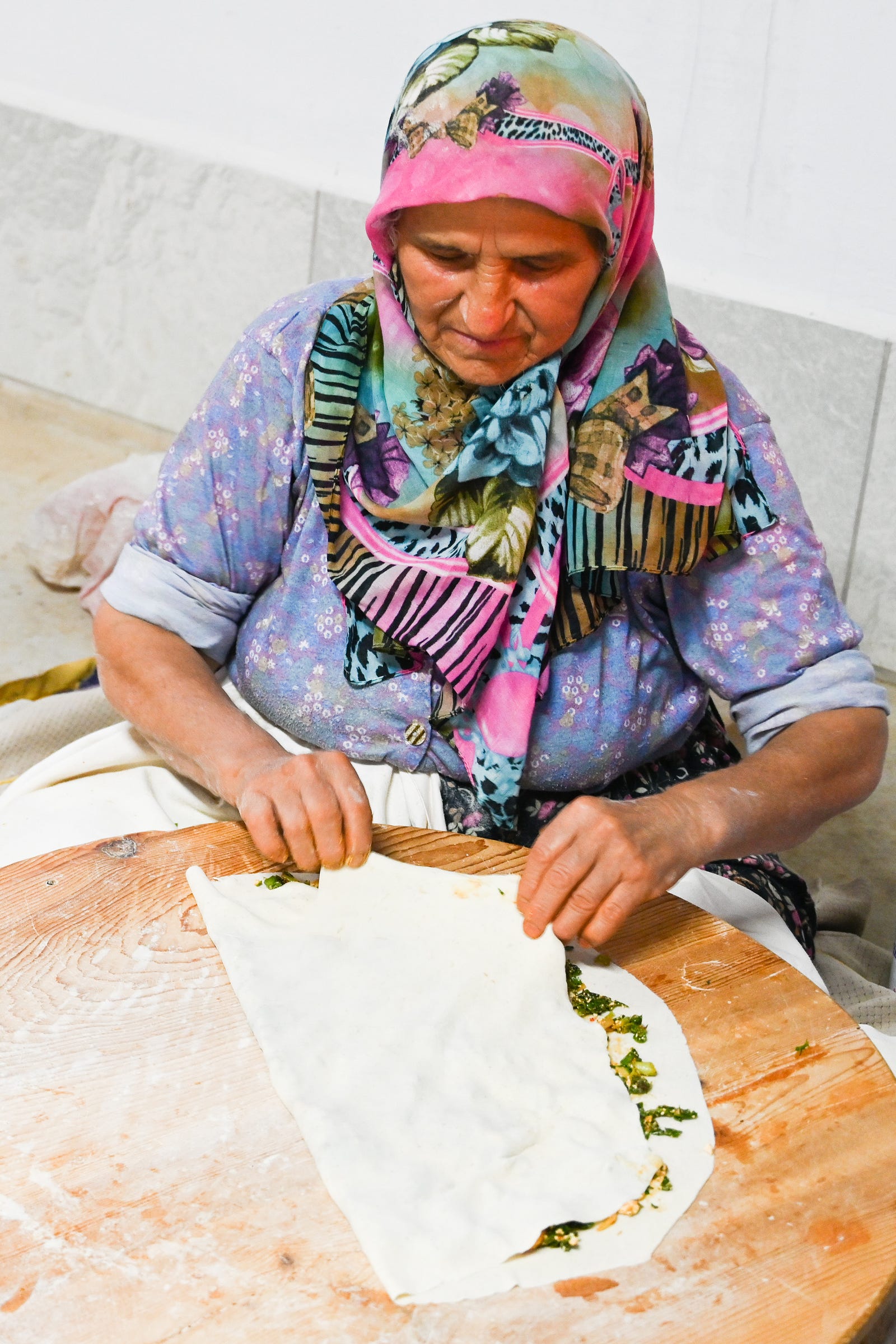

Sevdike, the 67-year-old grandmother utters her prayers quietly as the call to prayer is played over loudspeakers from the local mosque down the road.
In this predominantly Muslim country, mosques dot the landscape all around Turkey, even out here in the farmland. Five times a day, the azan (Islamic call to prayer) is heard ringing through the countryside.
Above the symphony of sounds coming from motorcycles passing by, and the calls of goats and roosters, the azan is delivered by the muezzin––the person who presents the azan from the mosque.
My husband is gently chided by the father of the house and the uncle for having his legs crossed during the azan. Smiling, they let him know that it is a sign of disrespect to the prophet, as all feet should be touching the ground during the daily prayers.
We are learning.
One minute later, he’s invited to re-cross his legs. The azan is over.
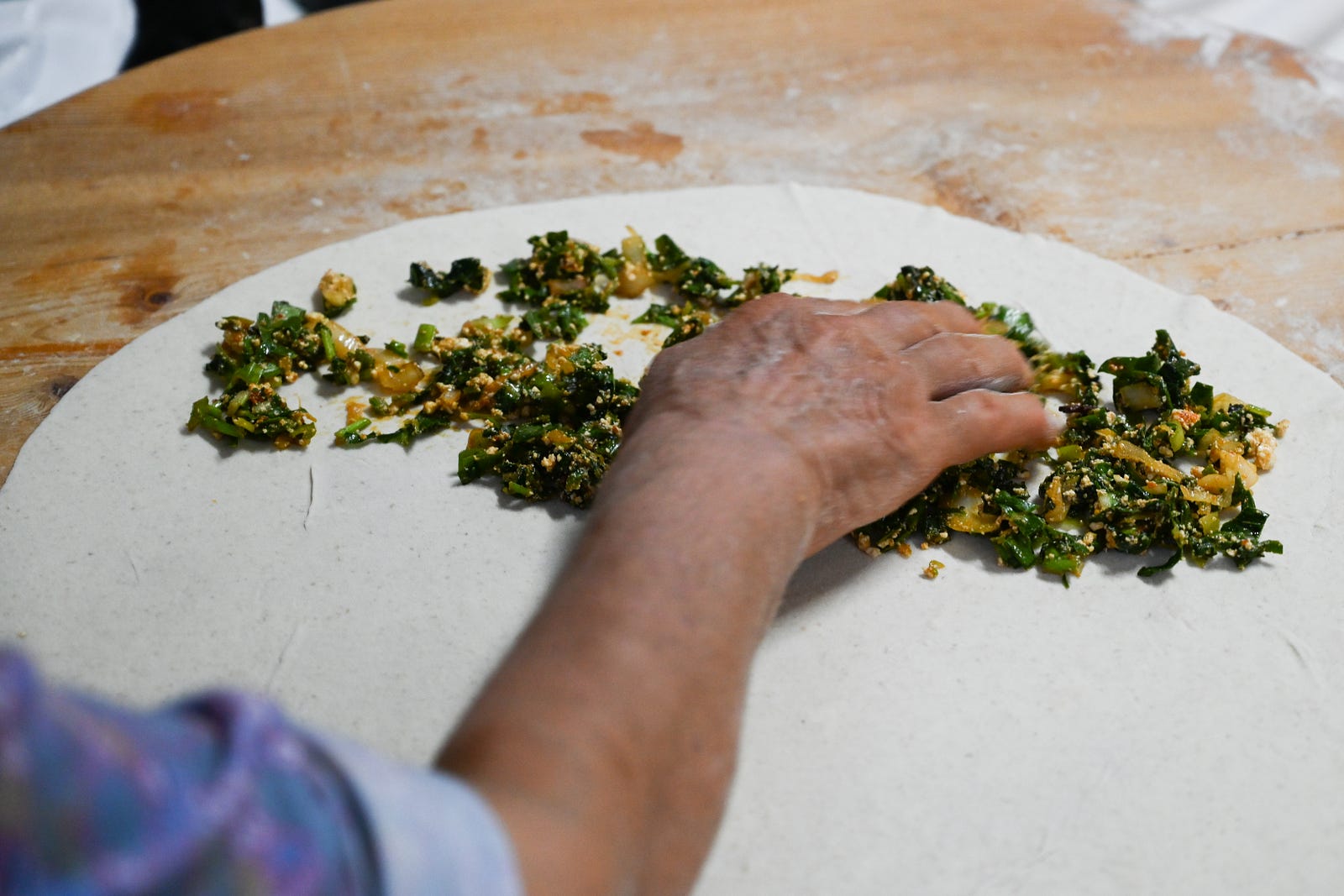
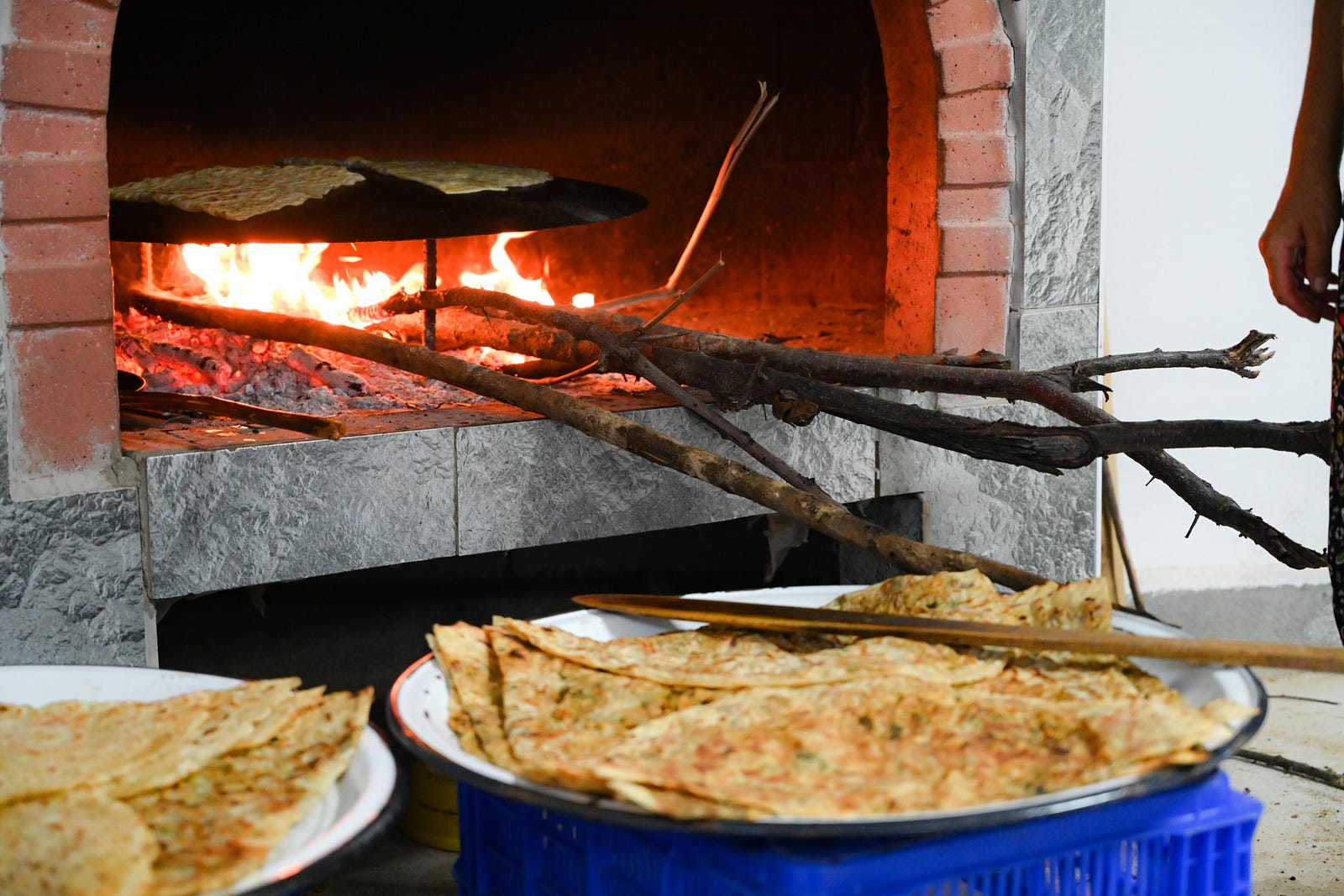
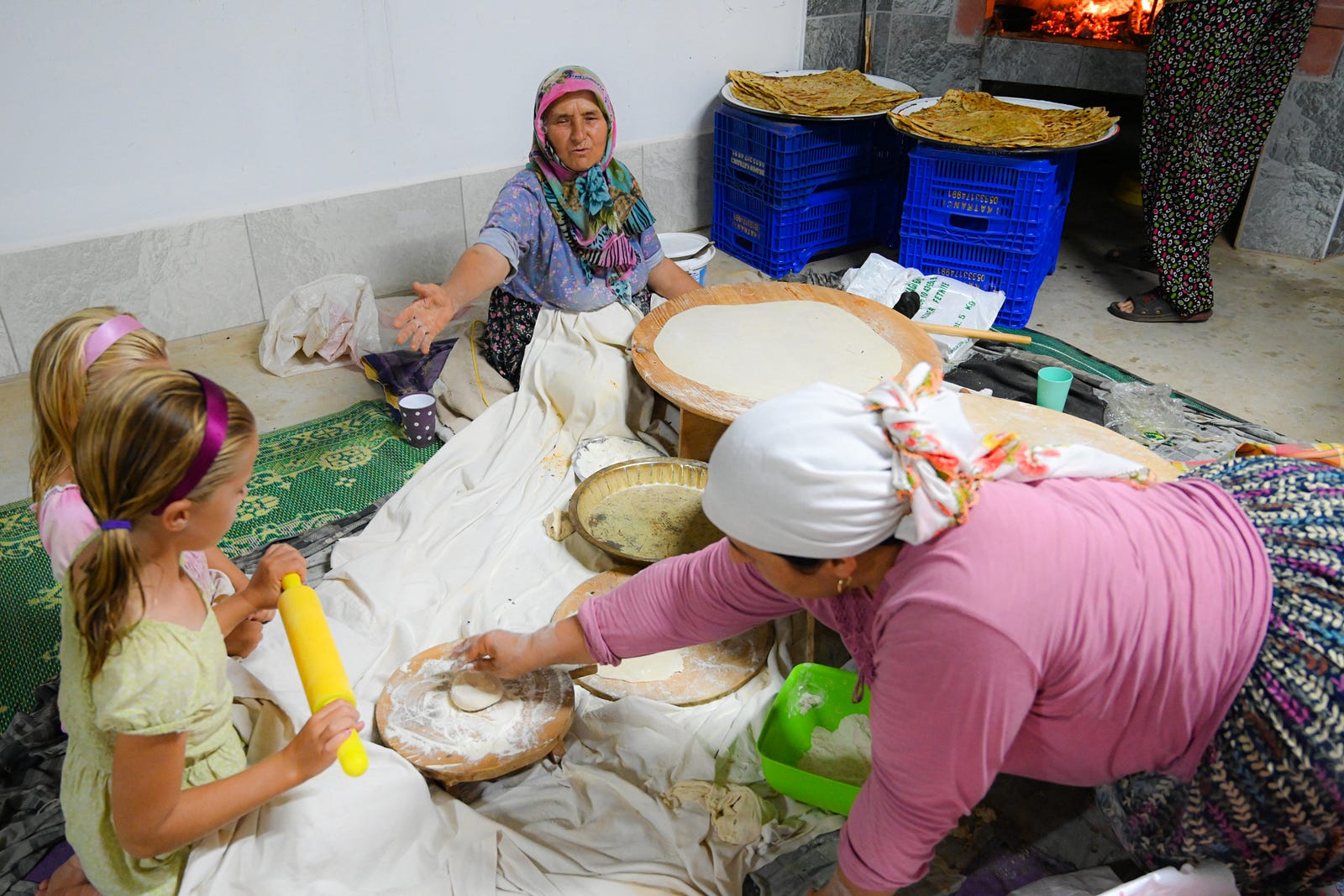
The women are patient as my girls and I learn the skills, and they teach us how to flip the pastries and make the local flat bread too, called yufkah.
We are learning.
It’s a normal Thursday night here in Turkey, and its no special holiday or event, but our family is exploring all of this with new Turkish friends. The children listen calmly, watching, learning, saying beautiful new words in Turkish over and over how to perfect the pronunciation.

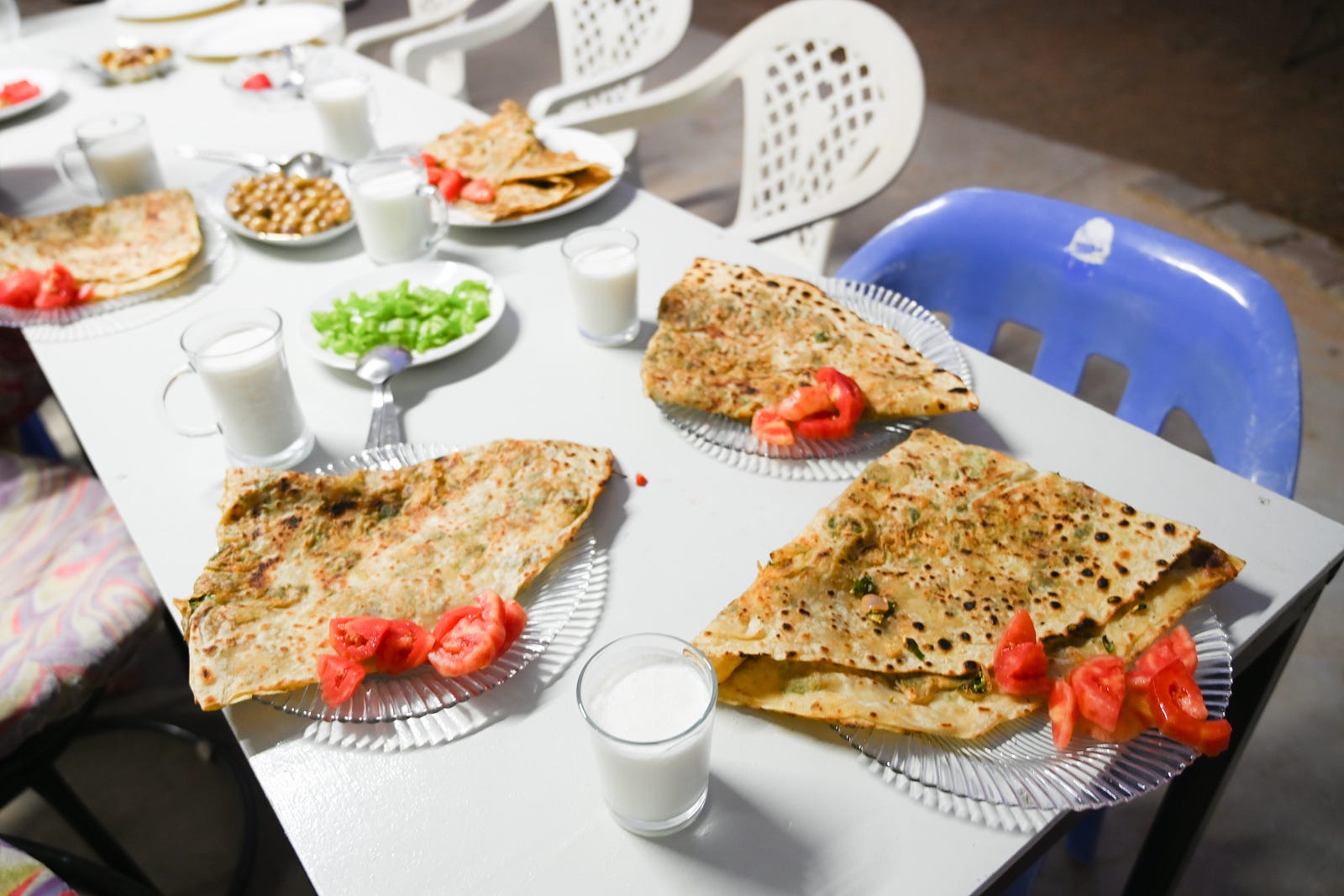
Finally, we sit down to enjoy the meal, served humbly around a long table on wheels and surrounded by plastic chairs. The börek is piping hot and topped with roughly cut fresh tomatoes, and accompanied by small glasses of what looks like milk.
The younger woman, Aysu, explains through Google Translator that the drink is actually freshly-made ayran, which the family made from the milk bought from their cousin’s grandmother’s goat.
To the yogurt, water, ice and mint have been added. They ask if they can add some salt to it now for us, and it’s the finishing touch. We are told we should drink it slowly throughout the meal with our börek, because “it is beautiful.”
We are learning.
At the end of the meal, they invite us to pick fruit to have with tea. Ripe figs hang from trees around the farm, and huge clusters of grapes hang from vines growing on trellises overhead. We pick a bowl of luscious fruit, and resettle to enjoy it with çay, the local Turkish tea which is consumed nearly continuously throughout each day.
It’s these kinds of cultural experiences that we can’t get by reading about them in a book. Being welcomed into a family like this, and doing life alongside them–this is the education in its fullest form.
